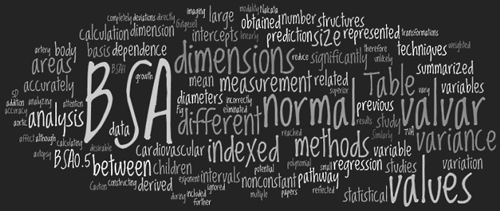
Lots of people have asked me something like:
We are finding discrepancies in Z scores calculated by your method and the Z scores calculated by software provided by Boston...
WHY ?
I usually feel obligated to first set the record straight: these are not my z-score calculations. They are calculators based upon published literature, and I cite the source literature on the same page as the calculator... In some cases it is clear that this misconception is a language barrier issue, and I must apologize for that. English is the only language I know (well, apart from some Spanish, but most of that I can't repeat in polite company).
To really answer the question I have to admit: I don't really have all the words, or even some of the right words, and I am basically incapable of organizing them in a meaningful order.
Fortunately, the lucid discussion about reference values for pediatric echo, the matters of predicting echo normal values, and the general application of z-scores towards pediatric cardiology has already been done– and by people far brighter and more eloquent than me. I have read and (mostly) understand, and I therefore highly recommend, the following:
- the invited editorial Establishing norms for echocardiographic measurements of cardiovascular structures and function in children
- the original article Theoretical and empirical derivation of cardiovascular allometric relationships in children
- the excellent chapter in Nadas' Pediatric Cardiology: Methodological Issues in Clinical Research
- the recent work, A Novel Method of Expressing Left Ventricular Mass Relative to Body Size in Children
Why are your z-scores different? I don't know for sure, but I can take some guesses. Certainly, I recognize that there are differences.
The inevitable, and, possibly, better question is "Which one is most correct ?"
